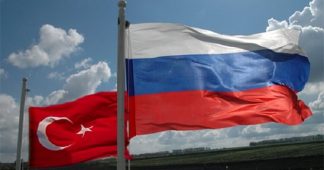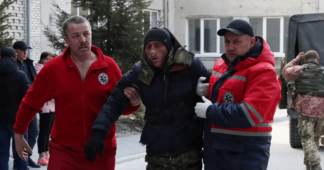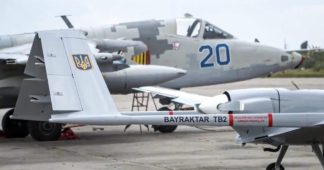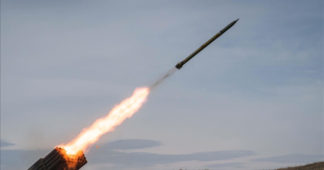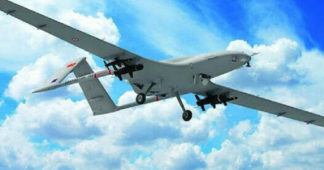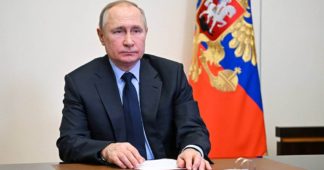by Stefan Korshak*
January 12, 2023
Ankara in November launched deliveries of dual-purpose improved conventional munitions (DPICMs) to Ukraine at Washington’s request, the authoritative U.S. magazine Foreign Policy wrote in a Jan. 10 article.
DPICMs are designed to destroy tanks by bursting into smaller submunitions. The U.S.-designed 155mm howitzer shell scatters about 88 anti-tank bomblets. Although the U.S. is not a signatory to the 2008 Convention on Cluster Munitions, U.S. law bars American firms from exporting DPICMs because of the weapon’s high dud rate and the danger that unexploded submunitions might pose to civilians.
Most western European nations are signatories to the 2008 UN-sponsored convention. Russia, Ukraine and Turkey are not signatories.
Ukraine almost ran out of Soviet-standard artillery ammunition in April, forcing the Armed Forces of Ukraine (AFU) to hastily incorporate NATO-standard 155mm howitzers and shells into its inventory and train gunners to use the weapons.
During periods of intense combat over the summer, AFU gunners fired off 2-3,000 155mm shells daily, leading NATO logisticians to scour world arms markets for more ammo. The Foreign Policy article did not report numbers of Turkish shells already delivered or to be delivered to Ukraine.
Asked for comment on the Turkish shell shipments to Ukraine by reporters in Moscow, Russian presidential spokesman Dmitriy Peskov said “It is difficult to comment on the credibility of such reports, but we are monitoring them closely.”
The U.S. Foreign Policy report went public 48 hours after India’s Economic Times newspaper, in a Jan. 8 article, reported Pakistan would soon dispatch 159 containers of 155mm howitzer shells, propellant bags, primers and fuses to Ukraine via Poland. Cluster munitions were not mentioned. The cargo ship BBC Vesuvius will land the ammo in the port of Gdansk in the second half of January, the article said.
Islamabad’s defense industry “may” in return receive Ukrainian assistance to upgrade Pakistani Mi-17 helicopters, the newspaper reported. Ukraine in the past was a major arms supplier to Pakistan, from 1991 to 2020, delivering $1.6 billion in weapons including hundreds of T-80UD tanks. More recently, Islamabad has assisted Ukraine by opening the Nur Khan air base in Rawalpindi to British military transport planes flying Ukraine-bound arms to Europe, the article said.
Turkey, since Russia’s full-scale invasion of Ukraine in Feb. 2022, has attempted to steer a more neutral road between Russia,Ukraine and its allies, providing much-needed weapons to Kyiv while, simultaneously, allowing Russian tourists and capital into Turkey. Turkish President Recep Tayyip Erdoğan has called for Kyiv and Moscow to accept a ceasefire and resolve their differences in talks, potentially with Ankara acting as an honest broker.
Turkish Foreign Minister Mevlüt Çavuşoğlu, in Jan. 11 comments reported by the Andolu news agency, appeared to edge closer towards Kyiv in how those negotiations might go, telling a Turkish reporter “We believe that this war will end at the negotiating table. But there are new parameters and realities. Russia declares that it is now ready for negotiations. The President of Ukraine Volodymyr Zelensky proposed a ‘peace plan’ of 10 points. We, Turkey, support this plan.”
Peskov and other Russian officials have said the key condition of the Zelensky peace plan – total Russian retreat from all occupied Ukrainian territory, including the Crimean peninsula and Donbas regions seized by the Kremlin in 2014 – are absolutely unacceptable. Peskov on Jan. 11 said “There are no prospects for peace talks with Ukraine.”
* Stefan Korshak is the Kyiv Post Senior Defense Correspondent. He is from Houston Texas and is a Yalie. He has worked in journalism in the former Soviet space for more than twenty years, and from 2015-2019 he led patrols in the Mariupol sector for the OSCE monitoring mission in Donbass. He has filed field reports from five wars and enjoys reporting on nature, wildlife and the outdoors. You can read his blog about the Russo-Ukraine war on Facebook, or on Substack at https://stefankorshak.substack.com, or on Medium at https://medium.com/@Stefan.Korshak
We remind our readers that publication of articles on our site does not mean that we agree with what is written. Our policy is to publish anything which we consider of interest, so as to assist our readers in forming their opinions. Sometimes we even publish articles with which we totally disagree, since we believe it is important for our readers to be informed on as wide a spectrum of views as possible.
